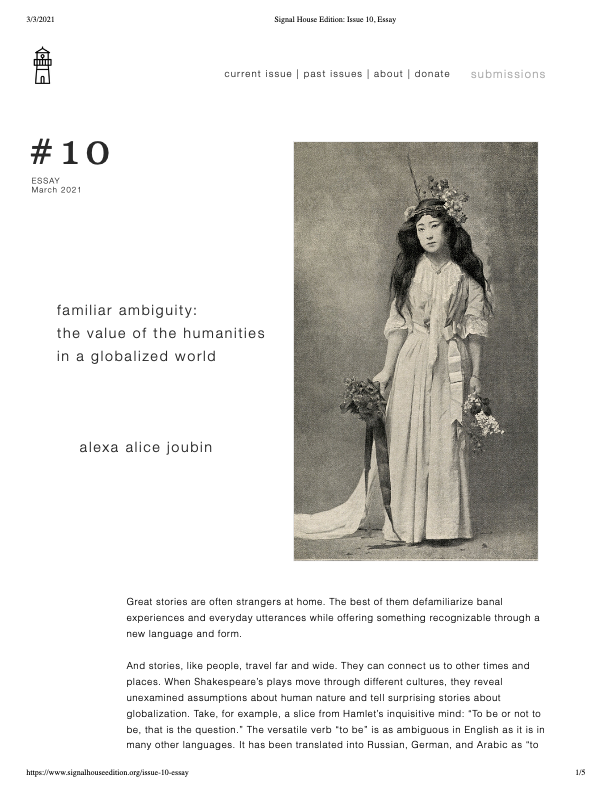“Familiar Ambiguity: The Value of the Humanities in a Globalized World”
Signal House 10, 2021
The world needs good question askers as much as it needs good problem solvers. Before solving problems, we need to first identify the problems. Great stories are often strangers at home. The best of them defamiliarize banal experiences and everyday utterances while offering something recognizable through a new language and form.
Our society has become so polarized because of groupthink (the practice of making collective decisions in ways that exonerate individual responsibility), which is driven by false assumptions of binary stability.
We can strengthen our democracy by fostering a more productive understanding of ambiguity in life and in literature. Specifically, by embracing more open-ended stories without imposing closure, we can foster multiplicity—the idea that all identities exist in flux and in relation to one another.
Literary ambiguity is our friend. The ambiguity is a welcome gift for the uninhibited mind, for it has been an ally of oppressed peoples in the Soviet Union, Tibet, South Africa, Poland, and elsewhere.
Literary ambiguity allowed theatre makers and audiences to express themselves under censorship. When ambiguity is deliberately eradicated, when only one version of a story is permissible, when things are painted black and white, it is usually during a dark moment of history: the Holocaust, the Cultural Revolution, lynching, the Scottsboro boys incident in the post-Reconstruction South of the Unites States.
When history is held hostage by politics, when human rights are violated, the humanities help restore dignity to what it means to be human.
